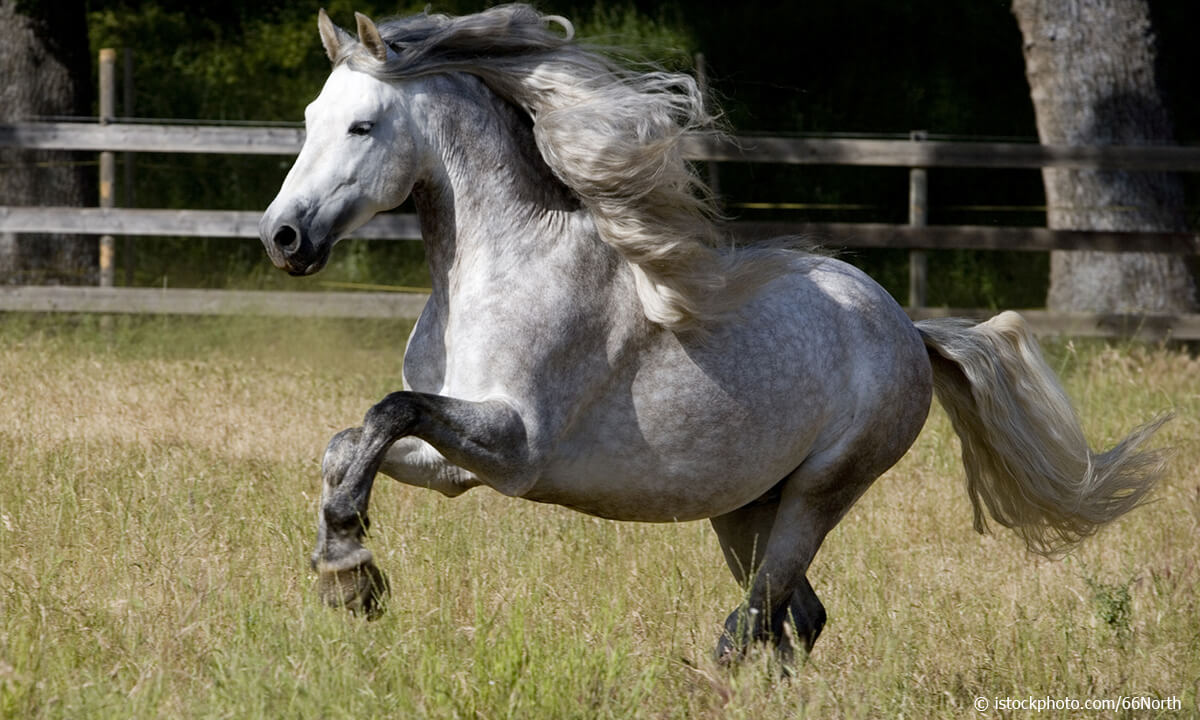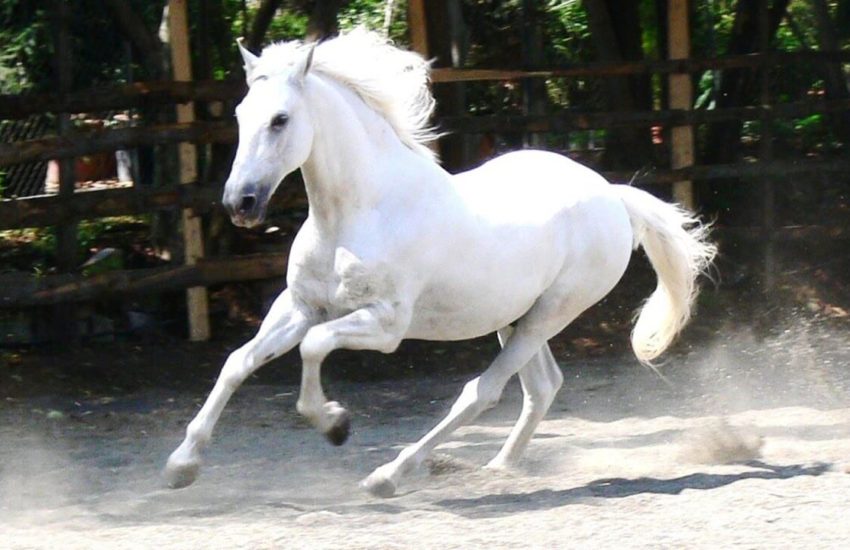The majestic Andalusian horse is renowned for its strength, elegance, and intelligence. Proper nutrition plays a vital role in maintaining these qualities. Whether you are a seasoned equestrian or new to horse ownership, understanding the specific dietary needs of this breed is crucial. This andalusian horse feeding guide will provide you with insights and strategies to ensure your horse thrives.

Understanding the Andalusian Horse
The Andalusian horse, a breed with a rich history, demands a balanced diet to maintain its health and performance. Known for its versatility in classical dressage and other equestrian disciplines, the Andalusian’s feeding regimen should be tailored to support its physical activities.
Key Characteristics of the Breed
Andalusians are known for their dense mane and tail, muscular build, and expressive eyes. They are often celebrated for their intelligence and gentle temperament, which makes them suitable for various riding styles. Learn more about their unique traits here.
Essential Nutrients for Andalusian Horses
Proteins
Proteins are crucial for muscle development and repair. A diet rich in quality protein sources such as alfalfa or soybean meal can help maintain the horse’s muscular structure.
Carbohydrates
Carbohydrates provide energy, which is essential for active horses. Oats, barley, and corn are excellent sources, but the intake should be regulated to prevent obesity.
Fats
Fats are a concentrated energy source and are often used to supplement the diet of high-performing horses. Vegetable oils, such as soybean or flaxseed oil, are common choices.
Vitamins and Minerals
Vitamins and minerals are vital for metabolic functions. A balanced diet should include supplements if natural forage does not provide adequate levels.
Creating a Feeding Schedule
Consistency is key when feeding Andalusian horses. Establishing a regular schedule helps prevent digestive issues. Feeding should be divided into multiple smaller meals rather than one large meal to mimic the horse’s natural grazing habits.
Daily Routine
Most horses thrive on a routine. Feeding times should be evenly spaced throughout the day, ensuring the horse has constant access to forage.
Adjusting for Activity Levels
The diet should be adjusted based on the horse’s activity level. Active horses require more energy, while those with less physical demands need fewer calories to prevent weight gain.
Common Feeding Mistakes
Overfeeding
Overfeeding can lead to obesity and associated health problems. It is crucial to monitor the horse’s weight and adjust feed accordingly.
Underfeeding
Conversely, underfeeding can result in malnutrition and loss of condition. Regularly assess the horse’s body condition score to ensure it is receiving adequate nutrition.
Water: The Most Important Nutrient
Access to clean, fresh water is essential. Horses can consume up to 10 gallons of water a day, and dehydration can lead to serious health issues.
Special Dietary Considerations
Some Andalusian horses may have specific dietary needs due to age, health conditions, or performance demands. Consulting with a veterinarian or equine nutritionist can provide personalized advice.
Senior Horses
Older horses may require softer feeds that are easier to chew and digest, along with supplements to support joint health.
Performance Horses
Horses engaged in high levels of performance may benefit from additional protein and fat sources to support their energy needs.
Monitoring Your Horse’s Health
Regular veterinary check-ups and monitoring of the horse’s weight, coat condition, and overall health are essential to ensure the feeding program is effective.
Conclusion
Feeding an Andalusian horse requires an understanding of its unique nutritional needs and careful planning. By following this guide, you can ensure your horse receives a balanced diet that supports its health and performance. For more insights into the Andalusian horse’s role in culture, visit this page.

FAQs
How often should I feed my Andalusian horse?
Ideally, feed should be offered in multiple small meals throughout the day to mimic their natural grazing patterns.
Can I feed my Andalusian horse treats?
Yes, treats can be given in moderation and should not replace regular meals. Opt for healthy options like carrots or apples.
What should I do if my horse refuses to eat?
If your horse refuses to eat, it’s important to consult with a veterinarian to rule out any health issues. Adjustments to the diet may be necessary.
This article contains affiliate links. We may earn a commission at no extra cost to you.








